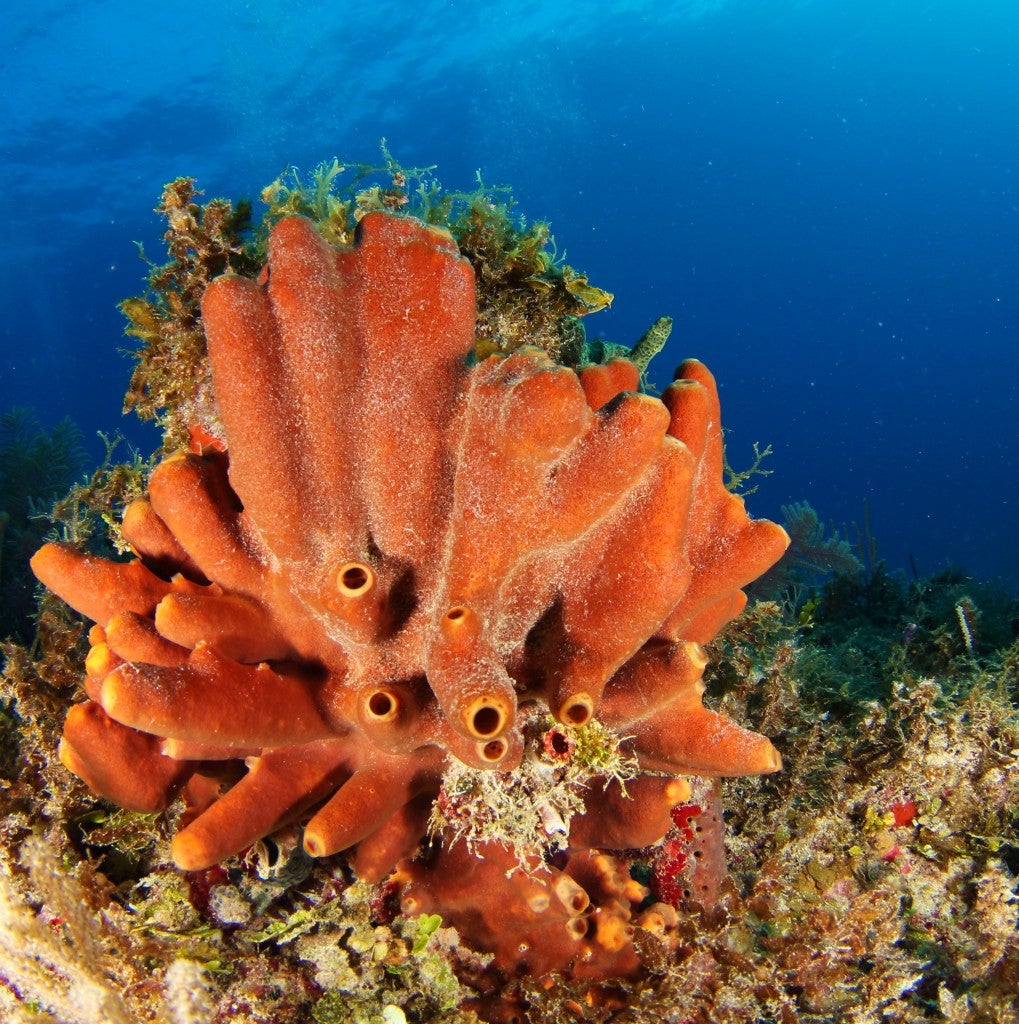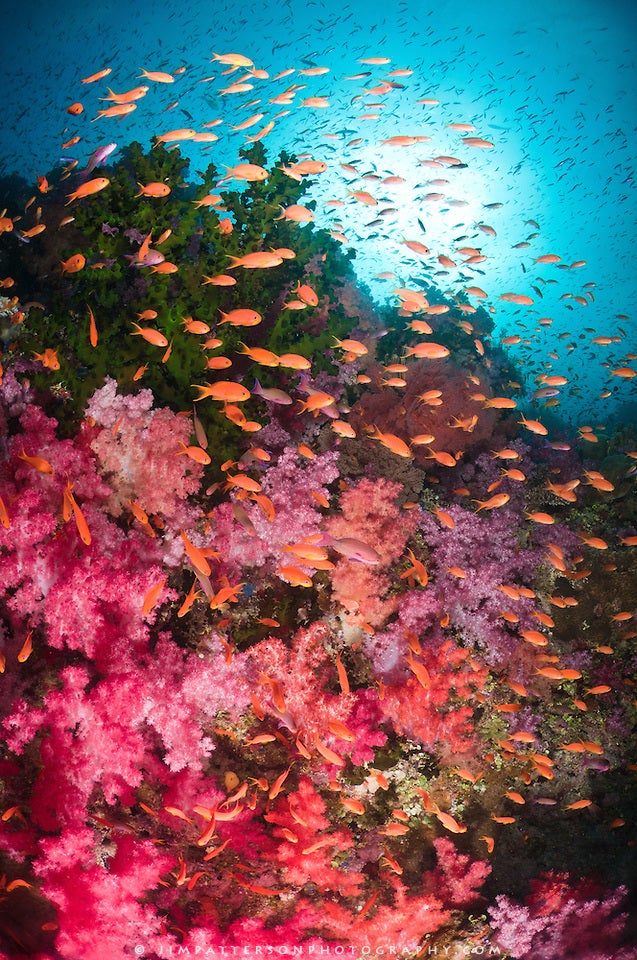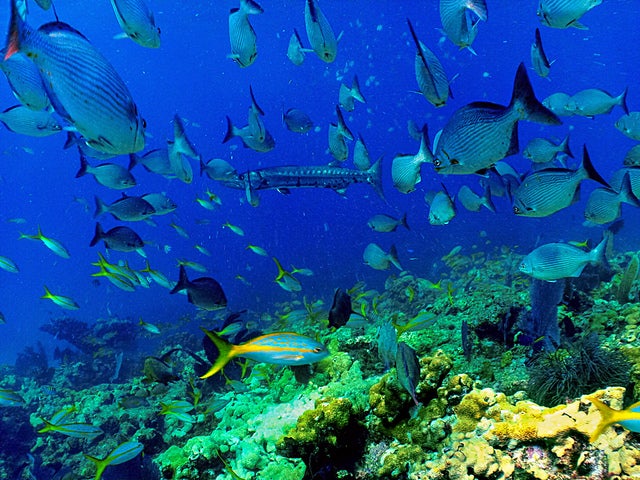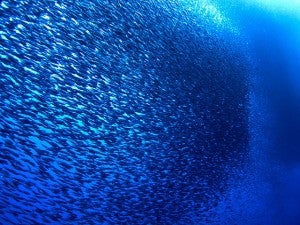
Healthy sponge in the Gardens of the Queen, Cuba. Photo: Noel Lopez Fernandez
Coral reefs seem delicate, but when they are healthy they can take a lot of abuse. I’ve seen corals recover from severe hurricanes and even volcanic eruptions. But coral reefs can also transition suddenly from colorful, vibrant ecosystems to mere shadows of themselves. Decades of scientific investigation have shed a lot of light on this, and in a recent publication, my colleagues and I summarize a lot of the data that have been collected on Caribbean coral reefs to identify where these dangerous “tipping points” are. This work is part of the Ocean Tipping Points project, a collaboration between several institutions aimed at finding tipping points in all kinds of marine ecosystems so that managers can implement measures that will keep these ecosystems well away from the brink. Read More














